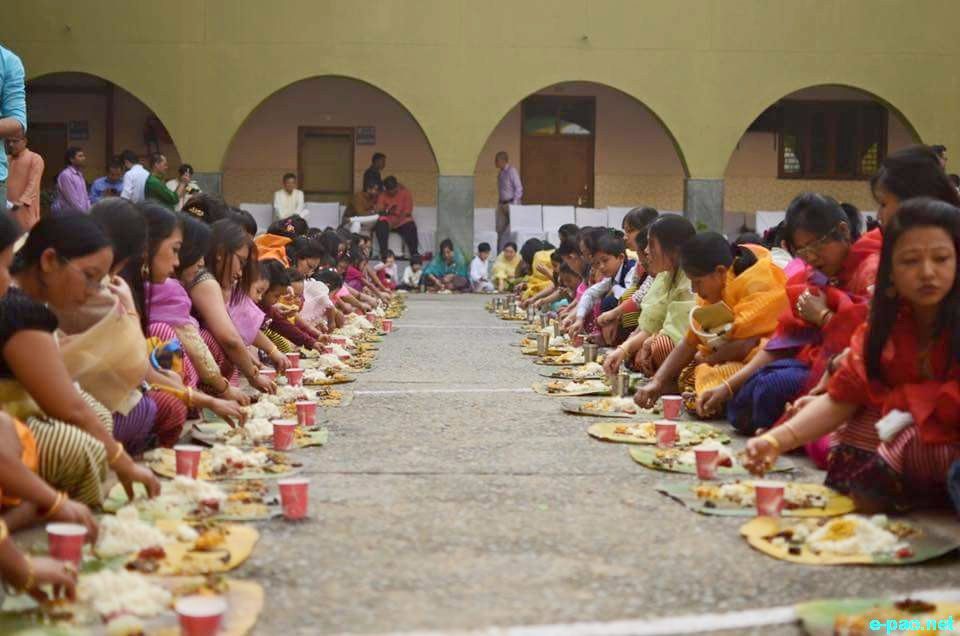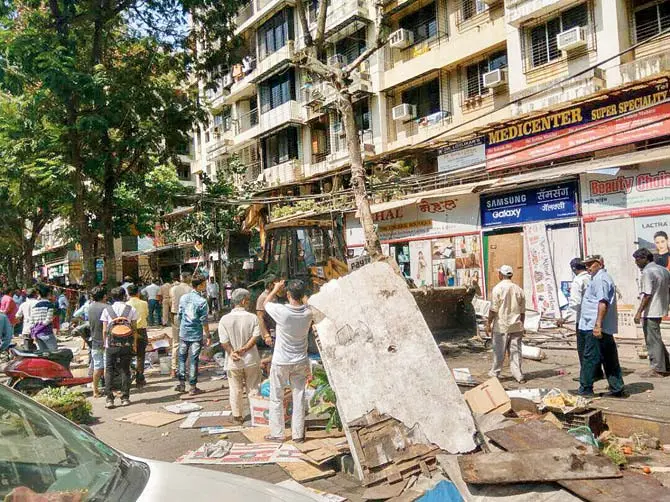Posted by Kumam Davidson
Ningol Chakouba, the biggest festival of the Meitei community in Manipur is celebrated in November every year. The ningol (daughter) is invited for a family meal at her paternal home where she is bestowed with gifts, love, and care by the male members of the family. This day particularly marks the epitome of pibas’ (sons’) love of their sisters. But as a piba myself I have begun to wonder if one day of lavish show of love and care is all we owe them!
The years before my parents’ marriage when my father pursued her, her step brother and step father threatened him for pursuing their ningol. She had no blood brother, and her biological father died young after which her mother remarried. They were against his repeated attempts to woe her. However, one day he coerced her into eloping with him and they were married inevitably. However, the marriage didn’t prove good to them. My father’s family didn’t like the whole affair allegedly on the ground that my mother belonged to a poor family. The new couple landed in a small paakhan (in mother’s words, a thatched hut) just enough for two people to sleep in the far pukhrimapaal (pond-dike) which was almost quarter of a kilometre from the yumjao (house).
During the long monsoons, the inside of the paakhan was as drenched as its outside. And in winters there was not enough warm rugs or blankets and the icy cold breeze would come through the thin wachet (bamboo shred) wall keeping them mostly awake at night. These were not the only troubles, the worst being trying to get enough food to eat for their yet to be born children. Mother narrated stories about how she went to Loktak to find water vegetables that could be cooked and worked in rice mills for the whole day to get rice enough for a meal. The pukhri (pond) belonged to father’s first uncle and the fish (Meitei’s staple diet) was hardly on the plate.
But as a piba myself I have begun to wonder if one day of lavish show of love and care is all we owe them!
They couldn’t just catch the aplenty fishes in the pond as they willed. It was never theirs and they knew it. Instead father occasionally tried his luck at catching fish in the turenmarin (river stream) adjoining the pukhrimapal. But, it would be once in a blue moon that they had fish for a meal when he got lucky in the turenmarin. Like that their lives went on and Ningol Chakouba came year after year. I remember accompanying mother just once for Ningol Chakouba. I never went after that and the invitation didn’t come every year. Even the times she went for Chakouba it was neither lavish nor very celebratory probably owing to the remarriage of her mother.
Ten years into the marriage, they had four daughters already and they desperately wanted a son as if their daughters didn’t mean as much as their yet to be born sons. The increase in the number of family members forced my grandparents to give them a small paakhan at the back of the yumjao. However, there were still not enough space, winter rugs, and food, let alone money.
Also read: The Tale Of Mahishasur And Durga: The Missing Story Of The Tribal Hero
Both father and mother worked in others’ paddy fields from dawn till evening and fed themselves and their children with the little money they got for their hard days toils. The fourth daughter had big appetite. It made mother’s life hell. Mother took the newly born infant and the four year old daughter to every paddy field she went to work since there was no one to look after them at home, the other two elder daughters would be in school or helping father at work. The in-laws couldn’t be simply be trusted given the strained relationship.
Most of the times the baby cried in hunger and the little girl, who should be running and playing with her friends, tried to unsuccessfully pacify the baby. Amul milk powder that had reached nooks and corners of Manipur by that time was too expensive for mother to afford that the tiny portions of loose powder milk she bought had to be fed to the baby in such a way that it lasted the whole day and days at a stretch. A tiny portion of it mixed with half a bottle of water which made it hardly taste like milk would be fed to the baby just two three times the whole day. The milk was so diluted and tasteless yet the baby sucked and drank happily. Such was how they raised their daughters, yet poverty didn’t stop them from bearing two sons.
Some years later, a son was born after the fifth daughter and a seventh child which was a boy too followed. Father was so ecstatic when his first son was born that he twisted his left leg while jumping in joy leaving him bedridden for almost a month. By then a room was given for the seven kids to miraculously live together in the yumjao, literally one room with just one big bed and a single wardrobe. There was no kitchen, bathroom and toilet. The kids had to use neighbours’ toilet and the common pond for other essentials.
Ten years into the marriage, they had four daughters already and they desperately wanted a son as if their daughters didn’t mean as much as their yet to be born sons.
Parents were caught up in running a rice hotel that they inherited from grandmother. Grandmother once asked my father to see after the business in her absence for few days. She was going for a short trip to Vrindabhan, a pilgrimage common among elder Hindu women in Manipur. He gave a big no. She persuaded him promising it was for few days. God knows what happened after her trip, she never really went back to business after she returned.
Parents started running the hotel and soon they moved out leaving the seven kids on their own. The younger ones were eventually given to the care of the elder ones. Life continued to be difficult especially for the elder ningols to juggle between looking after the younger ones and helping parents. We were left on our own, without our parents to fend us against relatives’ glaring eyes or threats from strangers. The ningols became the guardians of the family in the absence of parents.
The hotel brought in some steady income and all the ningols were sent to government schools and colleges. However, their two sons were sent to an English-medium private school just after two years of elementary schooling in a government school. My immediate elder sister protested to study in the same school as me and my brother. However, parents plainly refused stating that there was not enough money to send three of us in the private school. That hit her quite badly, she failed the class and stopped going to school that year. Meanwhile, the sisters had started helping parents in the family business one after another from very young age.
Mother constantly fell sick and that forced sisters to work longer hours in the hotel. On many occasions they missed out on school and coaching yet father was harsh and abusive to all of us, to sisters even more so. They were all brilliant students in school, but I stole the limelight because I was the first son getting schooled in the best private English school and being a bright and obedient student I was loved by everyone. But they were bright students as well, but it didn’t just matter as much as I did. Their lives were compromised in the name of poverty and their brothers’ welfare. It was also occasionally said that being ningols they would be married off one day and find new homes.
Three of the ningols got married one after another. Many years later stories of domestic violence and abuse surfaced in the case of the first two marriages. Mother tried to stand up for her daughters but her effort didn’t prove successful. Father silently swallowed the fact that his daughters were ill-treated. The few times he raised his authority he referred to how such stories ‘defamed him’ and that they should care about his ‘reputation’.
I was furious; I fought with my brother-in-laws on their behalf, but in the name of respect for elders, I was forced to cut short each time I spoke against them. Life has changed for all of us and the married ningols have raised their own children now. However, there are still questions unanswered and problems unresolved. These ningols were forced to compromise their education, career and many years of their lives on whatsoever grounds. And when their husbands’ families didn’t prove homely, respectable and loving enough to them everyone around them told them to be silent. So, they fought on their own.
Also read: Indian Hindu Festivals: No-Win Situation For Women
This Ningol Chakouba, I genuinely wonder on what basis we are going to celebrate Chakouba this year. What do we (as brothers and fathers) tell them about the sacrifices they made many years back? What reason do we give them for not sending them to private schools their brothers were sent to? What answer do we give them for leaving one unhappy home to another? What excuse do we give them for not being with them when they were alone in their husbands’ houses silently bearing the fear, violence and pain? How are we going to compensate their grief? How are we going to love them back in the way they truly deserve? Do we even love them enough?
Kumam Davidson is an independent journalist and a social media advocate for social justice. He is also a PhD Scholar in JNU and the co-founder of The Chinky Homo Project. His journalistic writings have been published in Firstpost, Scroll, Gaylaxy Magazine, among others.
This article was previously published on Homegrown and has been re-published here with permission.
Featured Image Source: E-Pao
About the author(s)
Guest Writers are writers who occasionally write on FII.




